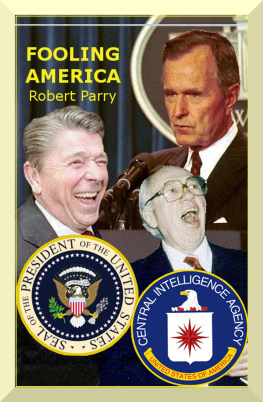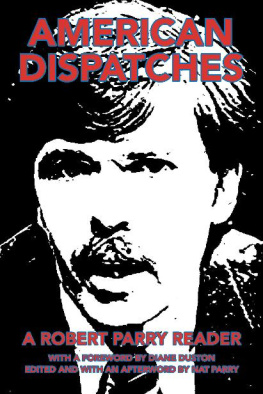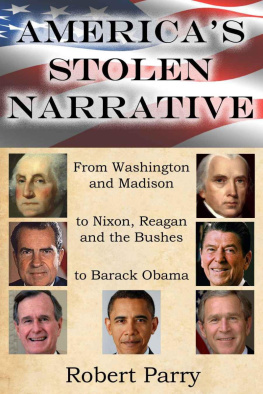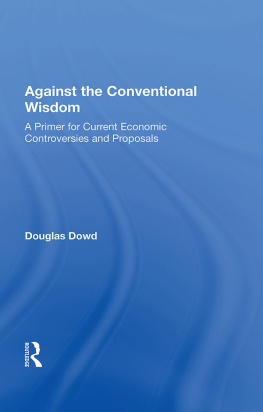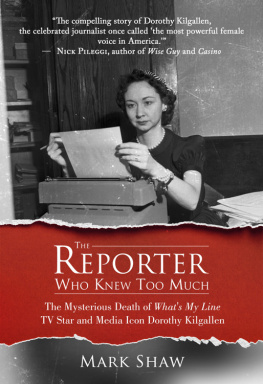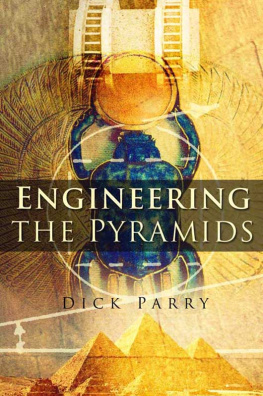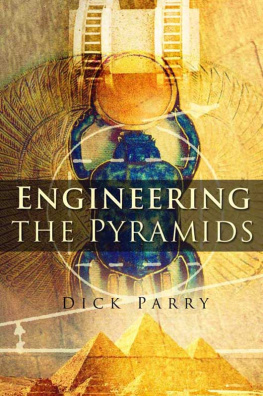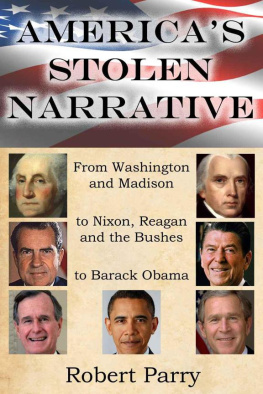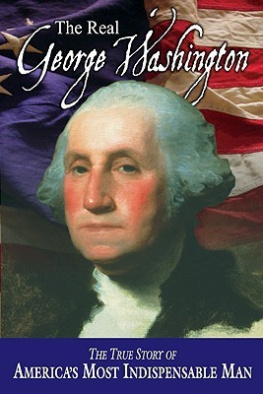
ISBN 0-688-10927-6
1992 $25.00
A behind-the-scenes look at how government seduces the free press into abandoning hard investigation and insight. Former Associated Press and Newsweek reporter Parry calls on the public, press, and Congress to reassume their bipartisan responsibility to challenge Conventional Wisdom and uncover the truth.
Fooling America : how Washington insiders twist the truth and manufacture the conventional wisdom
Parry, Robert, 1949
This book was produced in EPUB format by the Internet Archive and converted to EPUB format automatically by outdated software. Some semblance of readable text was restored by hand editing, but like automated conversions, perfection is an elusive prey.
Contents
PART 1
1 The CW Runs for President
2 The CW Takes the White House
3 The Governing CW
4 The CW Goes to War
5 CW, Noriega, Contras and Drugs
6 The CW Fights a Middle East Bad Guy
7 The CW, the al-Sabahs and the CIA
8 CW and Peace
9 CW Versus the Vietnam Syndrome
PART 2
10 CW and the CIA Director
11 CW, the Sandinistas and Buzz Words
12 CW and the Mighty Wurlitzer
13 CW and Contra-dictions
14 CW and a Man Named North
15 CW and the Cover-up
16 CW, Breakthrough and Cover-up Redux
17 The CW and Americas Future
Notes
PART 1
1 The CW Runs for President
Newsweeks Mickey Kaus chomped into a greasy hamburger at the incongruously named Burger Heaven restaurant on Forty-ninth Street in midtown Manhattan. The two-level coffee shop with fake brown wood and slow-moving waiters may have seemed an odd place to divine what Washington insiders were thinking about the down-and-dirty 1988 presidential campaign. But on many Friday afternoons, a day before Newsweek goes to press, Kaus and his collaborator, Jonathan Alter, would take a break from the magazines office across the street, order some burgers at Burger Heaven and muse about the campaigns conventional wisdom.
Starting in early 1988, the pair had written a weekly tongue-in-cheek chart for Newsweek's Periscope page that, with arrows up, down, or sideways, kept track of what the insiders were thinking about the campaign. Although partly a spoof showing how often the pundits ended up with egg on their faces, the CW Watch was the first systematic endeavor to follow the periodic twists and turns of Washingtons influential conventional wisdom.
By 1988, the conventional wisdom had emerged as arguably the dominant institution in the nations capital, even though it lacked a building, had no roster of deputy assistant secretaries and never convened an 8:30 a.m. intelligence briefing. Through its power to legitimate and delegitimate, the CW exercised enormous influence over the direction of the nations public debate and especially the presidential race. The CWs disdain guaranteed that a candidate had little hope of getting his message to a national audience and could hasten his departure from the campaign.
Yet while munching hamburgers at Burger Heaven and mulling the latest CW on the 1988 campaign, Kaus and Alter would readily agree that the conventional wisdom they tracked had been a reign of errors, the title of a CW wrap-up piece they wrote on the election. For years there has been an informal but discernible universe of reporters, consultants and commentators who reach the same predictable conclusions about the same political events at roughly the same time, Kaus and Alter wrote in Newsweek. After a few days, of course, these political creatures often change direction (and analysis) completely, en masse and without apology, like a school of fish.... Cursed by its need to constantly find something new to say, by its slavish devotion to polls, its insular reliance on the Washington-New York gossip axis, the CW has compiled a track record this year that is even more abysmal than usual. Week after week, what seemed obvious to every respected analyst on Monday morning looked ludicrous by Tuesday night.1
Nevertheless, each week of the presidential campaign, Kaus and Alter, with the help of political correspondent Howard Fineman, charted the CW. They gave arrows up and down to candidates, staffers, strategies, hot issues, even occasionally other journalists. A typical construction would be Old CW-New CW, showing how last weeks brilliant insight would be this weeks campaign refuse. In the April 18, 1988, issue, for instance, Democratic front-runner Michael Dukakis got an arrow up, Old CW: Attempt at humanization pathetic. New CW: Attempt at humanization brilliant. George Bush, meanwhile, got an arrow down, with the comment: If hes such a shoo-in, why is Dukakis beating him in the polls? Sadly for Dukakis, it would be his Old CW that would prevail in the November elections, as Bush rolled to a landslide victory as the shoo-in that the CW had mocked. With CW, the trends the thing, not long-term accuracy.*
*A good example of the CWs long-range unreliability came in a special glasnost edition of the June 6, 1988, CW Watch, which tried its punditry hand on Soviet political rivalries. Boris Yeltsin was xd off the list altogether with the clever remark Forget those comeback rumors. If the party confab drafts him, its for the army. Three years later as the elected president of Russia and the man who faced down a hard-line-communist coup, Yeltsin stood as a major international figure and the man who forced Mikhail Gorbachev into retirement.
Newsweeks CW chart was born from the frustration Alter and Kaus felt about the magazines constant temperature taking of the political campaigns. One week in 1987, Alter said, Newsweeks editors wanted some kind of political piece that had all the hackneyed political handicapping in it. I thought why not do it as a chart.... The main motivation behind it [was as] a way of freeing up the Nation section [of Newsweek] for doing something more interesting. Very quickly, it took on a life of its own. Before long, the chart was the most talked-about feature in the magazine, and its findings were even promoted in news releases touting Newsweek's top stories.
The magazine was on to something with the Conventional Wisdom Watch. The chart hit an immediate and responsive chord with many readers, especially the younger ones. Its clever, often snotty tone captured the publics new cynicism toward government. The Watch was making fun of politicians, just as Americans were sensing their own impotence over the nations political process. Not only did the snappy put-downs report the thinking of Washingtons insiders, they gave voice to the publics contempt for those who fancied themselves the nations leaders.
But the CW Watch and the growing derision toward politics that it spoke to further cheapened the campaign debate. Conventional wisdom obsessed over personality flaws, emotional issues and outright trivia. Candidates of substance got little hearing. Those who staked out gutsy positions on controversial issues found their seriousness rated not for its wisdom but for its effectiveness as a political gimmick.
Former Arizona governor Bruce Babbitt ran a colorless, issues-oriented campaign for the 1988 Democratic nomination, which the CW found charming but hopeless. Early in the primary season, Babbitt got a sideways arrow with the puckish observation: Good news: ideas being examined. Bad news: ideas being examined. A week later as the Iowa caucuses neared, Babbitt was arrowed down, with the observation: Live by the CW, die by the CW. Bruce Babbitt was praised as too-candid-to-win. Now hes dismissed as too-candid-to-win. After poor showings in Iowa and New Hampshire, Babbitt was xd off the CW Watch's list of candidates: Just shows best man cant win.
Next page
